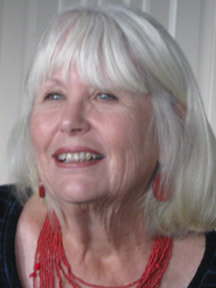After Russia's humiliating rout from northeastern Ukraine, it appeared that Putin was preparing to solidify Russia's positions in the Donbas and dig in for the winter. An unquiet stalemate of sorts was likely to drag on as the anniversary of the Feb. 24 invasion rolled around. Then everything changed on Sept. 21. After seven months of denying that the “special military operation” to cleanse Ukraine of its Nazi leadership would have any impact on the lives of ordinary Russians, Putin announced a partial mobilization that would call 300,000 former military into the army. The chaos that followed pulled the scab off the lie that the people of Russia supported the invasion of Ukraine. Thousands of young men prepared to flee the country. The line of cars at the border crossing into Georgia was 24 hours long. Airline tickets to totally random cities in Kazakhstan were selling for $20,000. Young men bicycled through forest paths to safety in Finland. In 50 cities throughout the 11 time zones of Russia, more than 3,000 were arrested for protesting the call-up (and subsequently were handed draft notices in their jail cells!) Forty members of regional governments signed an official objection to the action, and a military recruitment officer was shot in a Siberian city. This was an action that Putin resisted for months. Russia watchers had expected a mobilization announcement on Victory Day, May 9, after the initial invasion on Feb. 24 failed to take Kyiv and oust the government. Or Putin could have used the national holiday celebrating the end of World War II to claim victory in Ukraine and end the military action. In fact, he barely mentioned the “special military operation” in his speech in Red Square. However, the recent Ukrainian offensive that chased Russian forces from thousands of square miles of territory in northeastern Ukraine, as well as the grinding Russian effort to secure the Donbas region and prepare it for a sham annexation, depleted the already underprepared Russian army. And the West mustered a remarkable and continuing resolve to isolate Russia in the face of the invasion. Still, he resisted mobilization because he knew that the widely touted support for the war across the country was paper thin. And he was spot-on. So what pushed him to take such a suicidal step? Certainly not the sporadic public outbursts of protest his police have been so effective at stomping out. Probably not the stifling sanctions of the West, as onerous as they’ve been. And absolutely not out of any empathy for the ethnic autonomous regions of the east that have been drained of men to support the war while upsetting the smallest number of people. No, what brought him, kicking and screaming, to the announcement of Sept. 21 were the hawks of Russia who enthusiastically supported the war and demanded a total commitment to victory. It started with the bloggers who were embedded with Russian battalions. They were cheerleaders who exaggerated the advances and ignored the failures on the battlefield, and they were largely responsible for keeping the Russian public unruffled. Then this summer the cheerleaders began to write about major screw-ups. (Their battlefield blogs used a much stronger word, but I’m still of the generation that frowns on that.) They wrote about hungry soldiers looting kitchens for food and stupid decisions that cost dozens of lives. They began asking why so many generals had been killed and why they were on the front lines in the first place. And they began listing the names of the dead—a particularly significant factor when you consider that the Russians seldom repatriate the bodies of foot soldiers killed. Commentators on state television began to parrot the bloggers and that was probably most telling of all since wide swaths of the enormous country have no internet service and state TV is the only source of information. Then one of those television commentators with a particularly hawkish bent was assassinated in the middle of her very posh Moscow suburb. That prompted lots of speculation that Ukrainians were infiltrating the educated and sophisticated cities of European Russia. Now the people who had Putin’s ear began to press for an all-out victory in Ukraine and that required more cannon fodder. As I write, the chaos throughout the country rages on while thousands of men are fleeing rather than take up arms in a war they see as Putin's Folly. Michelle Carter is the former managing editor of the San Mateo Times. Throughout 1995, she traveled across the 11 time zones of the world’s largest country as the U.S. Information Agency’s Journalist-in-Residence in Russia. She is the author of two books, From Under the Russian Snow (Bedazzled Ink Publishers, 2017) and Children of Chernobyl: Raising Hope From the Ashes (Augsburg, 1993).
0 Comments
Leave a Reply. |
Bedazzled Ink AuthorsBlog posts from our authors. Archives
January 2023
Categories
All
|
Books & Imprints |
Information |
Contact |
Proudly powered by Weebly

 RSS Feed
RSS Feed